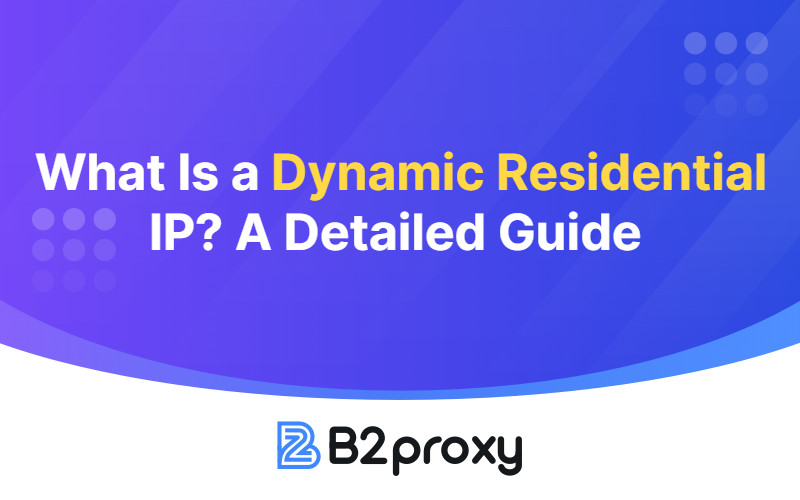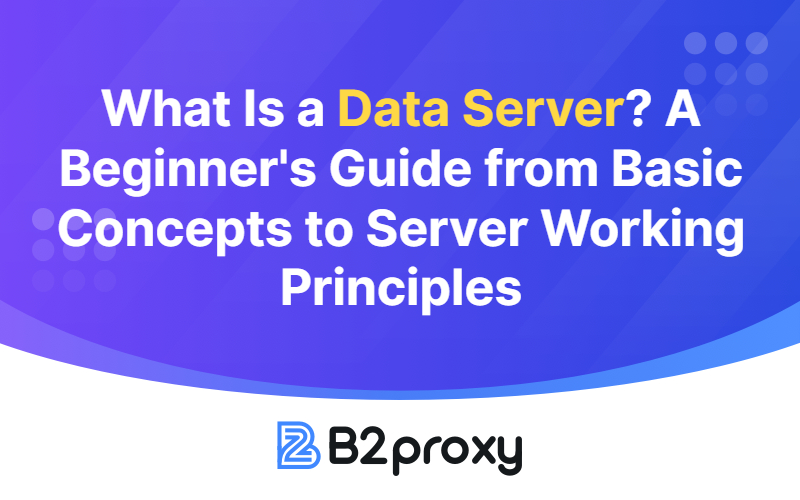Rotating IP vs. Static IP: Which proxy is better for your business?
 March 27.2025
March 27.2025

<p style="line-height: 2em;"><span style="text-wrap: nowrap;">In today's digital business environment, choosing the right proxy IP strategy has become a critical decision for enterprise network operations. Different types of IP solutions have their own characteristics to meet diverse business needs. In this article, we will analyze the core characteristics of Rotating IP and Static IP to help enterprises make the best choice based on actual business scenarios.</span></p><p style="line-height: 2em;"><span style="text-wrap: nowrap;"><br/></span></p><p style="line-height: 2em;"><span style="text-wrap: nowrap;">Rotating IP's Advantages and Application Scenarios</span></p><p style="line-height: 2em;"><span style="text-wrap: nowrap;"><br/></span></p><p style="line-height: 2em;"><span style="text-wrap: nowrap;">Rotating IP systems provide enterprises with unique operational advantages by continuously changing network identifiers. This type of rotating IP management is particularly suitable for business scenarios that require large-scale data collection. E-commerce price monitoring systems can effectively circumvent competitors' anti-crawler mechanisms by automatically switching IP addresses every minute. Social media management tools use Rotating IP to simulate user behavior in different regions, providing brands with real market feedback data.</span></p><p style="line-height: 2em;"><span style="text-wrap: nowrap;"><br/></span></p><p style="line-height: 2em;"><span style="text-wrap: nowrap;">In terms of technical implementation, modern Rotating IP systems have developed three main models. Timed Rotating IP mode automatically changes IPs at preset intervals and is suitable for regular data collection tasks. The Intelligent Adaptive System uses machine learning algorithms to dynamically adjust the rotation strategy according to the response of the target website. Rotating IP on request provides a new IP for each individual visit, ensuring the highest level of anonymity. Together, these technologies form a flexible and versatile Rotating IP service system.</span></p><p style="line-height: 2em;"><span style="text-wrap: nowrap;"><br/></span></p><p style="line-height: 2em;"><span style="text-wrap: nowrap;">Static IP Stability and Professional Value</span></p><p style="line-height: 2em;"><span style="text-wrap: nowrap;"><br/></span></p><p style="line-height: 2em;"><span style="text-wrap: nowrap;">Static IP solutions have demonstrated irreplaceable value in specific business areas due to their superior stability and reliability. Enterprise remote office systems use fixed IP addresses to provide employees with a secure and stable network access environment. Financial transaction platforms rely on static IP to establish a reliable communication channel to ensure the traceability of each transaction. Cross-border e-commerce store operations require fixed IP addresses to maintain account stability and avoid platform security mechanisms triggered by IP changes.</span></p><p style="line-height: 2em;"><span style="text-wrap: nowrap;"><br/></span></p><p style="line-height: 2em;"><span style="text-wrap: nowrap;">The development of static IP technology in the professional sector is also notable. A new generation of enterprise-grade static proxies has implemented intelligent traffic management capabilities that automatically identify and prioritize business-critical data. Security-enhanced static IP solutions have built-in advanced threat detection systems to provide additional protection for sensitive data transmissions. Static IP services optimized for cloud computing environments significantly enhance network performance for cloud applications.</span></p><p style="line-height: 2em;"><span style="text-wrap: nowrap;"><br/></span></p><p style="line-height: 2em;"><span style="text-wrap: nowrap;">Enterprises need to consider a number of dimensions when choosing an IP solution. Business scale is a primary consideration. Smaller projects may be better suited to cost-effective Rotating IP, while large enterprise systems often require the stability of static IP. Data sensitivity is also critical. Compliance requirements in industries such as finance and healthcare often point to static IP solutions. The ability of the technical team should not be overlooked, as Rotating IP systems often require more specialized operation and maintenance support.</span></p><p style="line-height: 2em;"><span style="text-wrap: nowrap;"><br/></span></p><p style="line-height: 2em;"><span style="text-wrap: nowrap;">IP technology is moving towards intelligence. Adaptive hybrid IP systems can automatically switch between rotating and static modes to optimize resource allocation based on business needs, and AI-driven IP management systems can predict network risks and adjust IP strategies in advance. The introduction of blockchain technology will enhance the transparency and security of IP allocation, creating more possibilities for business applications.</span></p><p><br/></p>
You might also enjoy

What Is a Dynamic Residential IP? A Detailed Guide to Cross-Border E-commerce Account Isolation and Risk Control Solutions
Breaks down dynamic residential IPs, highlighting their role in account isolation, risk control, and building secure cross-border e-commerce systems.
February 27.2026
How to Access TorrentGalaxy Stably? 2026 Latest Working Links and Proxy Solutions Explained
A practical 2026 guide to accessing TorrentGalaxy reliably, explaining domain shifts, ISP restrictions, proxy methods, and security considerations.
February 27.2026
What Is a Data Server? A Beginner's Guide from Basic Concepts to Server Working Principles
Beginner's guide to data servers, covering core concepts, working principles, architecture, stability factors, and future cloud-driven trends.
February 26.2026







